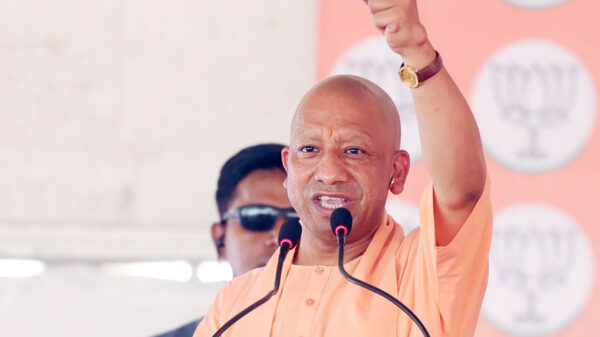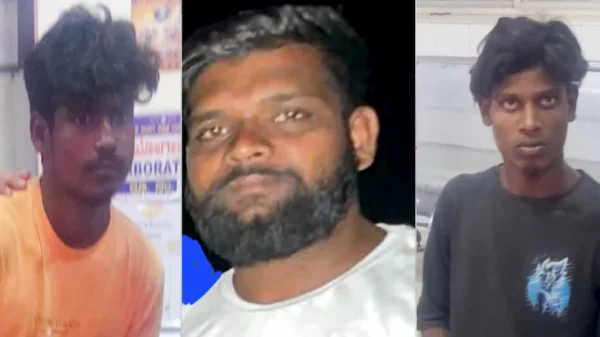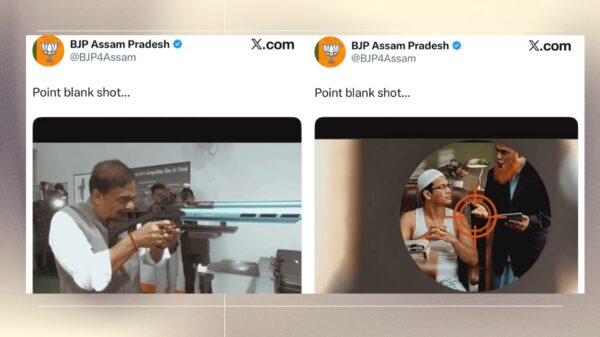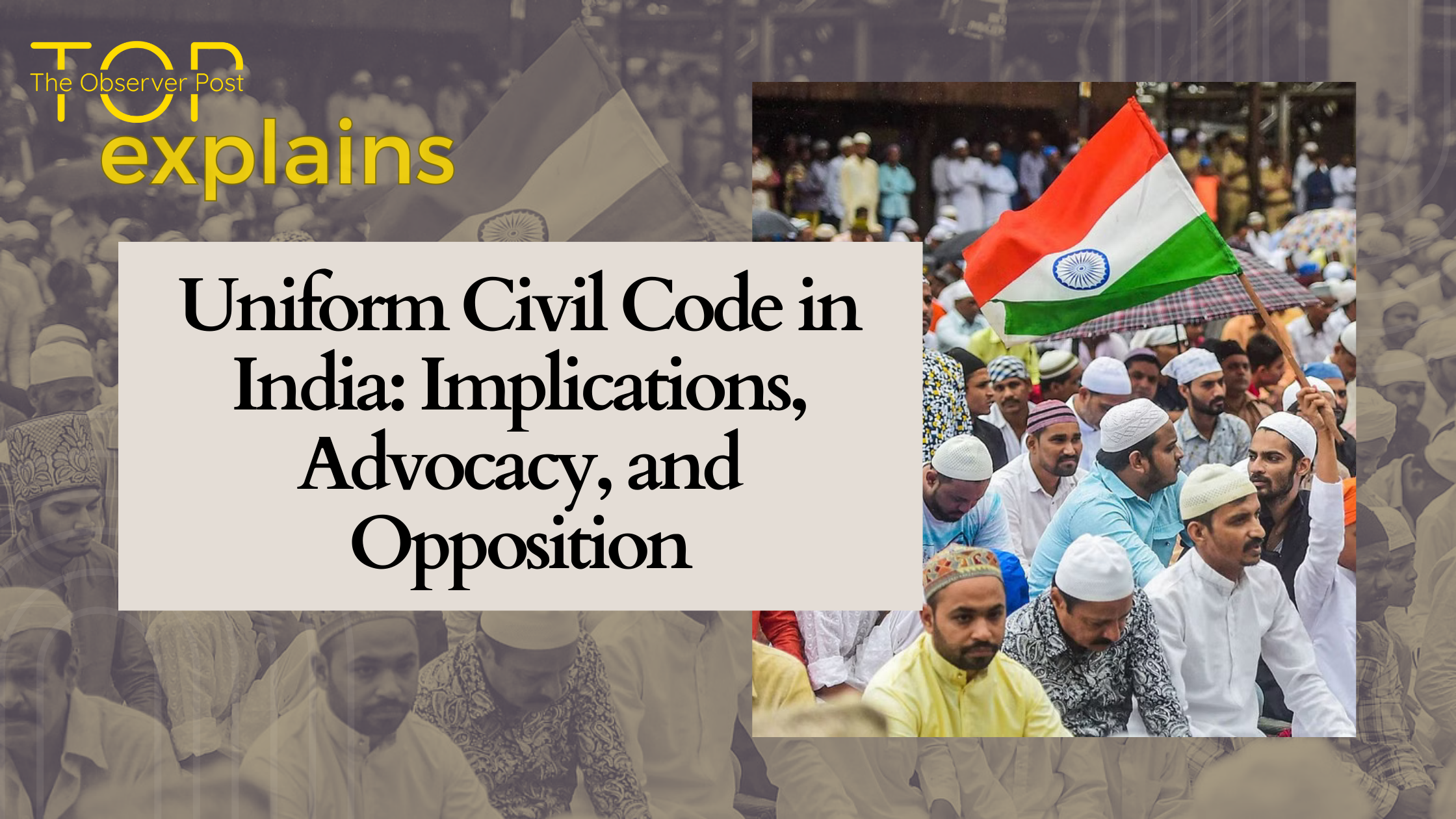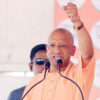Recent statements by Indian Prime Minister Narendra Modi regarding the implementation of a Uniform Civil Code (UCC) have reignited political discussions in India, particularly with upcoming state elections in Madhya Pradesh.
“Today, under the guise of UCC, individuals are being provoked. How can a nation function with two sets of laws? The Constitution itself emphasizes equal rights… The Supreme Court has also urged the implementation of UCC. These politicians from the Opposition are merely engaging in vote bank politics,” he stated while addressing a rally in poll-bound Madhya Pradesh.
The Prime Minister’s statement has sparked a widespread discussion, with numerous opposition leaders alleging that PM Modi has brought up the issue of the Uniform Civil Code (UCC) to gain political advantage, particularly with upcoming state elections.
What is UCC?
The UCC represents the idea of “one nation, one law.” It proposes a common legal framework to replace diverse personal laws governing marriage, divorce, inheritance, adoption, and more, which currently differ based on religion. The objective of the UCC is to establish a unified law applicable to all individuals, irrespective of their religion, caste, creed, sexual orientation, or gender. While civic and criminal laws are already uniform in India, the UCC focuses on personal laws governed by religious customs and traditions.
Historical Background:
The concept of a Uniform Civil Code (UCC) traces back to British rule in India when separate personal laws were formulated for Hindus and Muslims. However, the British government chose not to interfere in the governance of personal laws by different religious groups.
After India gained independence, B.R. Ambedkar advocated for the implementation of the UCC to eliminate “regressive and discriminatory” Hindu laws affecting women. This led to the enactment of several laws in the 1950s that provided women with greater rights and protections.
Article 44 of the Indian Constitution, listed under the Directive Principles of State Policy, emphasizes the state’s commitment to strive for a uniform civil code throughout the country.
However, the implementation of the UCC has remained a topic of debate and has faced various challenges over the years.
BJP’s Advocacy for the UCC:
The Bharatiya Janata Party (BJP) has long advocated for the implementation of the UCC. Former Prime Minister Atal Bihari Vajpayee criticized the Muslim community’s reluctance to adopt the UCC, pointing out that several Islamic countries had modified their personal laws to suit contemporary times.
“The framers of our Constitution proposed the Uniform Civil Code (UCC) with a specific intention. While numerous Islamic countries have revised their personal laws over time, India has not been able to engage in a constructive dialogue with minority communities to enact Muslim or Christian Personal laws for the greater welfare of the nation,” he had said.
India's ex P.M. Atal Bihari Vajpayee talks on UCC & marital laws
— Lady Of Equality 🇮🇳 (@ladyofequality) October 3, 2022
Every country grants divorce within 9 months, here we are destroying Hindu families while giving this provision to minorities @KirenRijiju @AmitShah @Manish_AFT @FamilyMan_berl_
@satyan_weshi @CriticsUnbiased pic.twitter.com/qFPubAyvnd
Since coming to power in 2014, PM Narendra Modi’s government has consistently stressed the importance of the UCC. Initiatives such as the abrogation of Article 370 and the construction of the Ram Temple in Ayodhya have been significant campaign points for the BJP.
With the upcoming elections, the government is actively working towards UCC implementation.
Key Areas Likely to be Affected:
1. Age of Marriage: Currently, different personal laws in India have varying age requirements for marriage. The UCC would establish a single, uniform age for marriage across religions. For instance, while Muslim law recognizes puberty as the age for marriage, Hindu law sets the age at 18 for women and 21 for men.
2. Polygamy: The UCC seeks to address concerns related to the treatment of women, including polygamy. While polygamy is allowed under Islamic law, its prevalence among Indian Muslims is relatively low. In the National Family Health Survey 2019-2021 report, it was found that a slightly higher percentage of Muslim women (1.9%) reported being in a polygamous marriage compared to Hindu women (1.3%).
3. Adoption and Custody of Children: The UCC would likely establish a uniform framework for adoption and determine the custody rights of children. Currently, Hindu and Muslim laws differ in their treatment of adoption and custody. According to the Hindu law, an adopted child is considered equivalent to a biological child, whereas in Muslim law, the concept of Kafala is followed, which assigns the responsibility of care and guidance to a foster parent for an adopted child. In terms of child custody, Hindu law designates the father as the legal guardian, while in cases where the child is born out of wedlock, the mother is considered the legal guardian. The 21st Law Commission noted that despite efforts to address gender discrimination in Hindu law, child custody largely remained dominated by men.
4. Divorce: The UCC may propose a simplified divorce procedure that aligns with the personal laws of different religious communities. The notable Shah Bano case highlighted the need for addressing gender-based discrimination, particularly in relation to triple talaq (instant divorce). The UCC discussions may take such cases into account while formulating divorce laws that uphold principles of justice and equality.
Arguments for and against the UCC:
Proponents of the UCC argue that it would promote equality, social cohesion, and justice by eliminating discriminatory practices present in various personal laws. They emphasize that a uniform code would align with the principles of a modern, secular, and democratic nation.
Advocates, including the Bharatiya Janata Party (BJP), stress the need for a progressive society that treats all citizens equally and harmonizes diverse traditions.
Opponents of the UCC express concerns that enforcing a single code may infringe upon the autonomy and rights of religious and tribal communities.
The All India Muslim Personal Law Board (AIMPLB) has expressed its objections to the UCC and has conveyed its concerns to the Law Commission. The AIMPLB specifically advocates for the exclusion of not only tribal communities but also all religious minorities from the purview of such a statute. Their argument is based on the preservation of religious autonomy and the protection of minority rights.
“The AIMPLB is of the view that not only tribals but every religious minority should also be kept out of the purview of UCC,” the organization said.
“The All India Muslim Personal Law Board has always been against the UCC. It is of the view that imposing only one law in the name of UCC in a country like India, which consists of people belonging to multi religions and cultures, is a violation of democratic rights.”
The Shiromani Gurdwara Parbandhak Committee (SGPC), a prominent representative organization of the Sikh community, has voiced its opposition to the Uniform Civil Code (UCC) by arguing that it is unnecessary. The SGPC contends that the UCC would amount to the suppression of religious minorities, impinging upon their rights, traditions, cultural practices, and religious ceremonies.
“There is an apprehension among the minorities in the country regarding the Uniform Civil Code that this code will hurt their identity, originality, and principles,” the committee said.
“The Sikh community opposes the UCC,” it said.
As many as 30 tribal organizations have expressed their apprehensions regarding the implementation of the Uniform Civil Code (UCC), citing concerns about the potential dilution of tribal customary laws.
“We protest the UCC for various reasons. We fear that two tribal laws — the Chota Nagpur Tenancy Act and the Santhal Parganas Tenancy Act — may get affected due to UCC. The two laws protect tribal lands,” Adivasi Jan Parishad president Prem Sahi Munda said.






